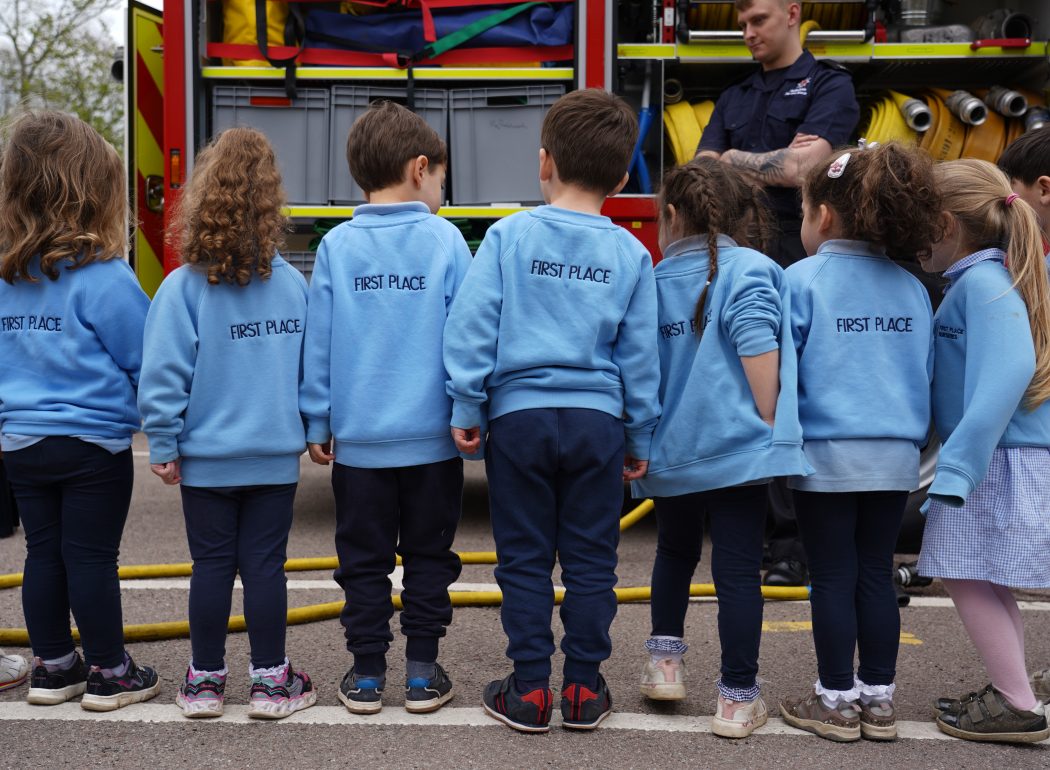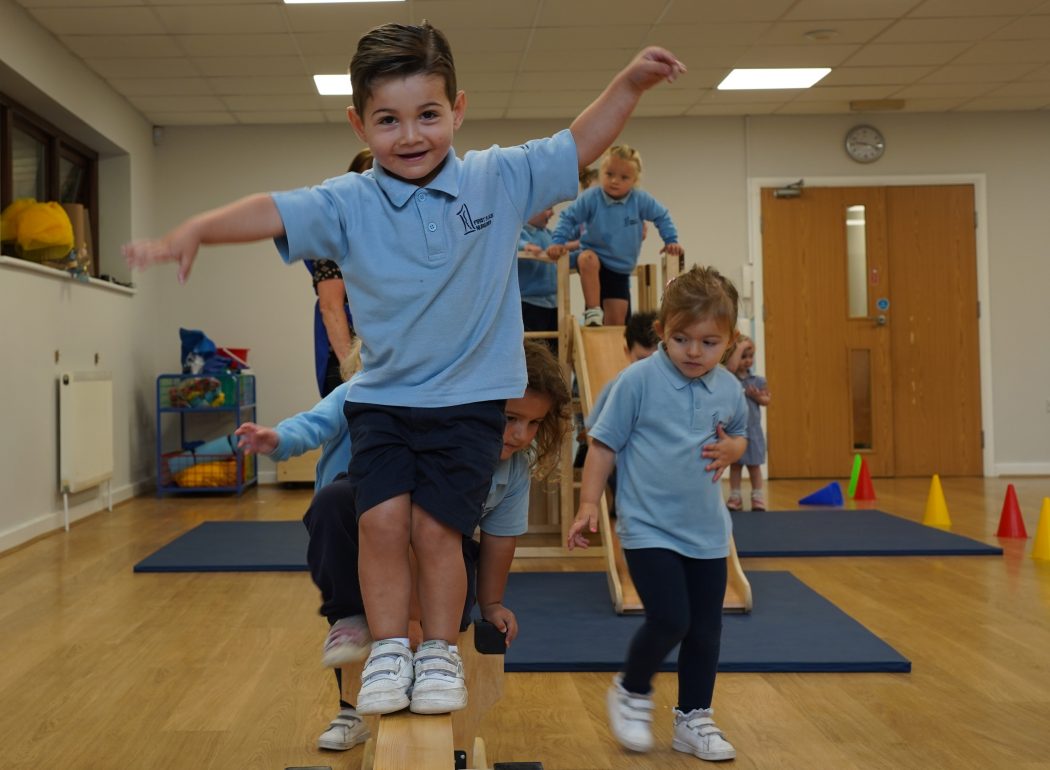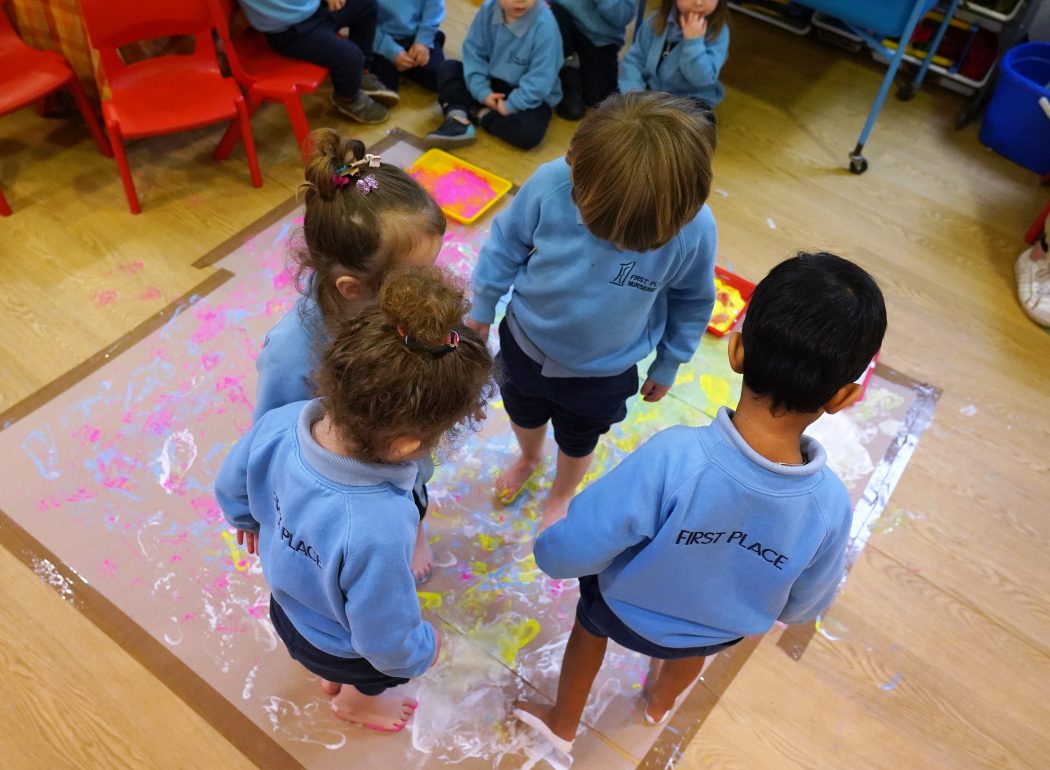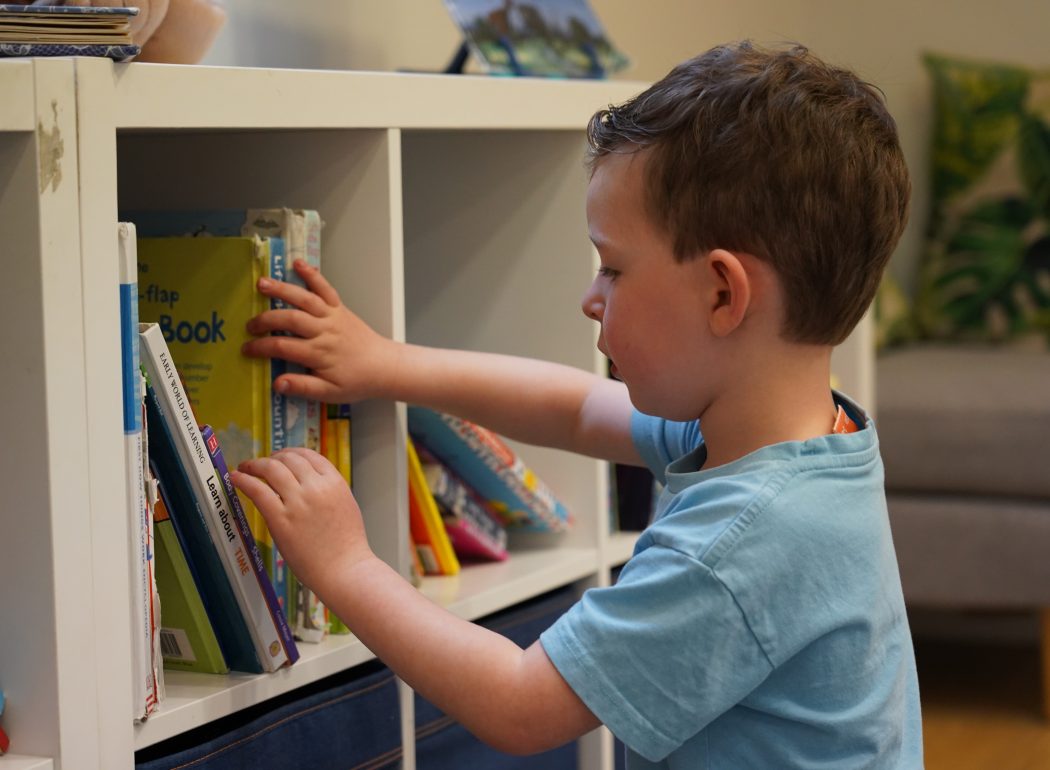-

Starting school is a huge transition in any child’s life which involves separation from familiar adults and friends. When the time does come for your child to start school, they will have more understanding of “change” and are able to approach new experiences with some self-assurance. However, they will still need to be fully prepared if they are going to be able to approach the transition with confidence.
How First Place support the transition from nursery to school
- Strong relationships and connections with feeder schools
At First Place we maintain good relationships and links with surrounding state and independent schools. We understand the choice of school for your child is such an important step for you and your child and we are happy to talk through this process and support you.
If there is a particular school that you are interested in that is not one of our main feeder schools, please do let us know as we are more than happy to form relationships with new schools.
We send out a letter to our parents asking which schools they are interested in for their child. It is important that this information is shared with us and if parents are looking to go down the independent school route that they keep us updated with assessment dates and any offers received, accepted or declined. We strive to ensure that everyone involved is working in partnership, we share only relevant information and keep the lines of communication clear, between us, parents and the school.
Our nursery management teams visit the schools and invite the heads of schools or reception teacher to visit nursery and see the children on a typical day. This enables them to see the children in an environment that they are familiar, happy and comfortable in.
- Parent partnership
We pride ourselves on parent partnership and working together with any ‘next steps’ to support your child in any particular areas needed.
Your child’s key person or room manager will liaise with you so you are aware of the information we share with a prospective school. This may include learning and development summaries, information regarding child protection and any work that has taken place to ensure the child’s welfare.
We recognise that parents will also need support during this time. Relationships will have been formed and certain aspects of family life have been shared with staff, making the move up to school a difficult goodbye for many. Our members of staff, particularly those who have been a ‘key person’, will also have formed bonds with children and their families. It can be extremely emotional ending these relationships. The transition to school will not only signify an end to familiar routines but also the end of relationships and a time to say goodbye.
Your child’s key person will discuss the transition with parents, asking questions such as when and how they are preparing their child for school. Going to “big school” is something that our preschool staff will begin discussing months ahead of time before your child is due to start school as, unless a child already has an older sibling at school, then the idea can be difficult for the child to relate to.
- Assessment preparation
Alongside preparing all our children for school, whether independent or state, our experienced preschool team will prepare your child for independent school assessments as required. - SEND Children
For a child with SEND (special educational needs and disabilities), where they will be able to attend mainstream school, there is a separate admissions process that will be overseen by the local authority’s Special Educational Needs and Disability Team. All decisions about starting school and how this is to be managed will be made with the child’s parents, the area’s Special Educational Needs Coordinator, or external representative, head teacher, key person and setting manager. These people work in partnership to share the information and resources needed to support the child at school. This may include any reasonable adjustments that the school will need to make, and additional training for all staff that is specific to the child’s individual needs.
- ‘Getting ready for school’ preschool pack
As soon as your child enters our preschool class, we gift a bag containing their very own First Place water bottle, a book you can read with your child all about going to school and our very own bespoke booklet ‘Helping your child to become school ready’.
- Encouraging independence
We encourage and promote independence in our children at First Place and once in preschool, if not before, it is so important that your child is walking in and out of nursery holding your hand and not being carried so that they are fully prepared to go to school.
- Role play and essential skills
Before your child’s last day, we ask our feeder schools to send us some second-hand uniform that preschool can use in their role play areas, so children become familiar with their “new” uniforms. First Place will acknowledge moving on to big school with a special Graduation celebration that parents may attend and a party. The children wear gowns and capes and receive a certificate along with a tassel of the year they leave First Place. First Place gift the school leavers with a mini First aid class to teach them important lifesaving skills.
Once children have left, we will always welcome them back for occasional visits, it can be reassuring for children to know they are still remembered. The early years setting plays an integral role in such a crucial period in a child’s development that the relationship does not have to end abruptly once they leave nursery – and for those children with a younger sibling, it will continue for many years to come.We love to hear how the children are doing at school so please do email in some photos of your children in their uniforms and let us know their progress and achievements!
What can you do at home to help the transition to ‘big school’
Transitioning from nursery to school is an exciting time for both children and parents. However, it can also be a challenging time for children who may struggle with the change. Parents can help children adjust to their new environment and make the transition to school as smooth as possible –
- Familiarise Children with the School Environment
Before the start of the school year, take your child to visit the school, and explore the school grounds, classrooms, and playgrounds. This will help your child to become familiar with the school environment and reduce any anxieties they may have about the unknown. You can also use this opportunity to meet the teachers and other staff, which will help your child feel more comfortable with them. - Encourage Independence
Encouraging independence is an essential part of preparing children for school. This includes teaching them how to dress themselves, use the bathroom independently, and pack and carry their own school bag. These skills will help children feel more confident and capable of managing themselves in a new environment. - Establish a Routine
Establishing a routine is crucial for children’s well-being and helps them feel more secure. Ensure that your child has a regular bedtime, wake-up time, and mealtime, and stick to them as much as possible. This will help your child to adjust to the new routine at school more easily. Getting a good night’s sleep is key to your child - Read Books about Starting School
Reading books about starting school is a great way to introduce children to the concept of school and help them understand what to expect. You can also use these books to address any concerns your child may have about starting school. - Encourage Socialisation
Encourage your child to socialise with other children their age and outside by arranging playdates or attending local community events. This will help them to develop social skills and make friends, which will make the transition to school more comfortable. - Communicate with Teachers
Communication is essential during the transition to school. Make sure you communicate any concerns you have with the teachers and ask for feedback on how your child is doing. This will help you to address any issues early on and ensure that your child is getting the support they need.
Please don't hesitate to get in touch if you'd like to talk through this process more. We truly understand that the transition is such an important step for you and your child, and we're more than happy to have a conversation and offer our full support.
- Strong relationships and connections with feeder schools
- Home
- -- About Us
- -- Our Curriculum
- Parent Area
- -- Fees
- -- Nursery dates
- -- Learning Journeys
- -- British Values/Prevent Duty
- -- SEN (Special Educational Needs)
- -- Privacy Notice
- -- Charity and Fundraising
- Radlett
- -- About
- -- Prospectus
- -- Classrooms
- ---- Milky Way
- ---- Mars
- ---- Jupiter
- ---- Pre School
- -- Feeder Schools
- -- Nutrition
- -- Testimonials
- Bushey
- -- About
- -- Prospectus
- -- Classrooms
- ---- Mars
- ---- Venus
- ---- Jupiter
- -- Feeder Schools
- -- Bushey Nutrition
- -- Testimonials
- Beaconsfield
- -- About
- -- Prospectus
- -- Classrooms
- ---- Mars
- ---- Pluto
- ---- Jupiter
- -- Feeder Schools
- -- Nutrition
- -- Testimonials
- Careers
- -- Staff and Careers
- Blog
- Contact






